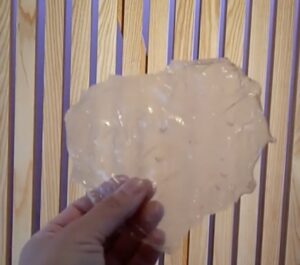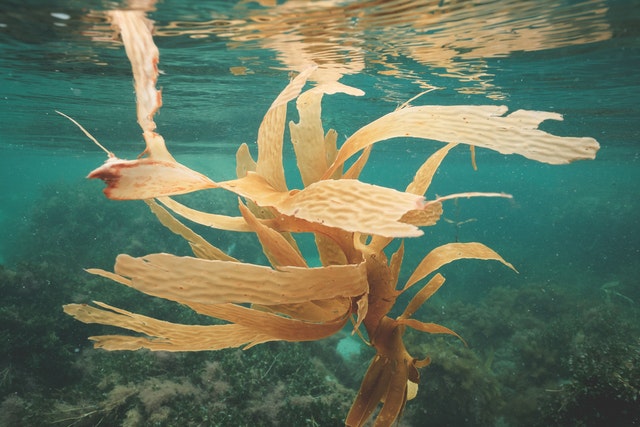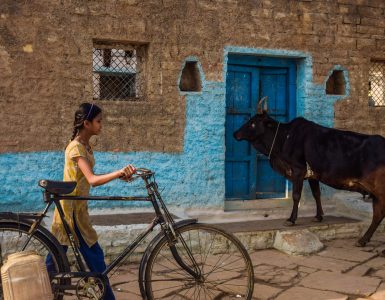Recognizing the importance of seaweed, the Government of India has notified the ‘Guidelines for Import of Live Seaweeds into India’.
The initiative brought by the Ministry of Fisheries, Animal Husbandry and Dairying aims to support the development of seaweed enterprises as a key economic driver.
The guidelines will facilitate the import of high-quality seed materials or germplasm from abroad, enabling domestic multiplication to ensure farmers have access to quality seed stock.

Seaweed refers to the countless species of marine plants and algae that grow in the ocean, rivers, lakes, and other water bodies.
Marine plants come in all sizes, some of which are microscopic, such as the phytoplankton that live suspended in the water while some are enormous like the kelp forests.
Regardless of their size, seaweeds play a vital role in the health of marine ecosystems, as they provide habitat for marine life and also maintain the health of the ocean. In addition, seaweed removes carbon dioxide from the environment and also traps many nutrients that are toxic to marine life.
In recent times due to cutting-edge innovation in the field of biotechnology, Seaweed has emerged as a raw material for a range of applications, including the ones which help to protect the environment.
Seaweed is being used in biofuels, to make alternatives to single-use plastic bags, as a feedstock for animals, ingredients in cosmetics, and pharma, among others.
In India, more than 800 species of seaweeds have been reported from the coasts of Tamil Nadu, Gujarat, Maharashtra, Odisha, Lakshadweep and Andaman & Nicobar Islands.
Seaweed cultivation is also happening in many parts of the country, especially along the Tamil Nadu and Gujarat coasts.
However, indiscriminate and unorganized harvesting of seaweed has resulted in the depletion of these precious resources.
Further, seaweed enterprises in India face the challenge of seed availability and insufficient quantity for the commercially valuable species, and quality degradation in the seed materials of Kappaphycus, the most commonly farmed seaweed species.
Pradhan Mantri Matsya Sampada Yoiana (PMMSY), the flagship scheme of the Government of India is envisaged to revolutionize the seaweed sector, aiming to increase seaweed production in the country by over 1.12 million tonnes by 2025.
Under the scheme, the Government has taken many steps to strengthen seaweed farming activities the prominent of which is the establishment of Multipurpose Seaweed Park in Tamil Nadu with a total investment of Rs 127.7 crore.
The guidelines outline a process for importing live seaweed, including a clear regulatory framework for the import of live seaweed, ensuring transparency and accountability, strict quarantine procedures to prevent the introduction of pests and diseases, risk assessment to identify potential biosecurity concerns and post-import monitoring for strengthening ongoing monitoring and risk assessment.
This guideline will encourage the responsible cultivation of seaweed, ensuring environmental sustainability and economic growth.
Cultivation of seaweed in India can be a significant boost for coastal villages, ensuring livelihood sustainability and socio-economic upliftment of the fishing community.
Further, the import of new seaweed strains will stimulate research and development, leading to enhanced seaweed production of a variety of seaweed species belonging to red, brown and green algae, paving the way for the development of downstream seaweed processing and value addition enterprises which will yield additional livelihoods in the villages while bolstering the overall export of the country.
As per the guidelines, for the import of live seaweed into India, the importers may submit a detailed application to the Department of Fisheries which will be reviewed by the National Committee on Introduction of Exotic Aquatic Species into Indian Waters. Upon approval, the Department will issue an import permit within four weeks, facilitating the import of high-quality seaweed germplasm.
The guidelines thus provide a comprehensive regulatory framework for the import of live seaweeds into India, ensuring that the process is conducted safely, smoothly and responsibly.
This presents a great opportunity for different stakeholders, such as researchers, entrepreneurs, and farmers, to contribute to the growth of the seaweed industry.






Add comment